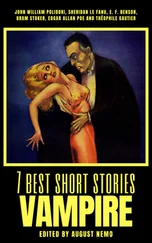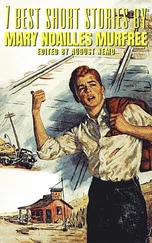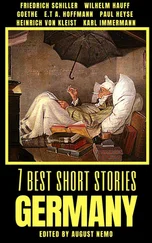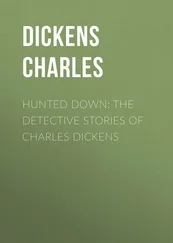Dickens
Chief in thy generation born of men
Whom English praise acclaimed as English-born,
With eyes that matched the worldwide eyes of morn
For gleam of tears or laughter, tenderest then
When thoughts of children warmed their light, or when
Reverence of age with love and labour worn,
Or godlike pity fired with godlike scorn,
Shot through them flame that winged thy swift live pen:
Where stars and suns that we behold not burn,
Higher even than here, though highest was here thy place,
Love sees thy spirit laugh and speak and shine
With Shakespeare and the soft bright soul of Sterne
And Fielding's kindliest might and Goldsmith's grace j
Scarce one more loved or worthier love than thine.
Algernon Charles Swinburne 1
by George Orwell2
Dickens is one of those writers who are well worth stealing. Even the burial of his body in Westminster Abbey was a species of theft, if you come to think of it.
When Chesterton wrote his introductions to the Everyman Edition of Dickens's works, it seemed quite natural to him to credit Dickens with his own highly individual brand of medievalism, and more recently a Marxist writer, Mr. T. A. Jackson, has made spirited efforts to turn Dickens into a blood-thirsty revolutionary. The Marxist claims him as 'almost' a Marxist, the Catholic claims him as 'almost' a Catholic, and both claim him as a champion of the proletariat (or 'the poor', as Chesterton would have put it). On the other hand, Nadezhda Krupskaya, in her little book on Lenin, relates that towards the end of his life Lenin went to see a dramatized version of The Cricket on the Hearth , and found Dickens's 'middle-class sentimentality' so intolerable that he walked out in the middle of a scene.
Taking 'middle-class' to mean what Krupskaya might be expected to mean by it, this was probably a truer judgement than those of Chesterton and Jackson. But it is worth noticing that the dislike of Dickens implied in this remark is something unusual. Plenty of people have found him unreadable, but very few seem to have felt any hostility towards the general spirit of his work. Some years later Mr. Bechhofer Roberts published a full-length attack on Dickens in the form of a novel ( This Side Idolatry ), but it was a merely personal attack, concerned for the most part with Dickens's treatment of his wife. It dealt with incidents which not one in a thousand of Dickens's readers would ever hear about, and which no more invalidates his work than the second-best bed invalidates Hamlet . All that the book really demonstrated was that a writer's literary personality has little or nothing to do with his private character. It is quite possible that in private life Dickens was just the kind of insensitive egoist that Mr. Bechhofer Roberts makes him appear. But in his published work there is implied a personality quite different from this, a personality which has won him far more friends than enemies. It might well have been otherwise, for even if Dickens was a bourgeois, he was certainly a subversive writer, a radical, one might truthfully say a rebel. Everyone who has read widely in his work has felt this. Gissing, for instance, the best of the writers on Dickens, was anything but a radical himself, and he disapproved of this strain in Dickens and wished it were not there, but it never occurred to him to deny it. In Oliver Twist, Hard Times, Bleak House, Little Dorrit , Dickens attacked English institutions with a ferocity that has never since been approached. Yet he managed to do it without making himself hated, and, more than this, the very people he attacked have swallowed him so completely that he has become a national institution himself. In its attitude towards Dickens the English public has always been a little like the elephant which feels a blow with a walking-stick as a delightful tickling. Before I was ten years old I was having Dickens ladled down my throat by schoolmasters in whom even at that age I could see a strong resemblance to Mr. Creakle, and one knows without needing to be told that lawyers delight in Sergeant Buzfuz and that Little Dorrit is a favourite in the Home Office. Dickens seems to have succeeded in attacking everybody and antagonizing nobody. Naturally this makes one wonder whether after all there was something unreal in his attack upon society. Where exactly does he stand, socially, morally, and politically? As usual, one can define his position more easily if one starts by deciding what he was not .
In the first place he was not , as Messrs. Chesterton and Jackson seem to imply, a 'proletarian' writer. To begin with, he does not write about the proletariat, in which he merely resembles the overwhelming majority of novelists, past and present. If you look for the working classes in fiction, and especially English fiction, all you find is a hole. This statement needs qualifying, perhaps. For reasons that are easy enough to see, the agricultural labourer (in England a proletarian) gets a fairly good showing in fiction, and a great deal has been written about criminals, derelicts and, more recently, the working-class intelligentsia. But the ordinary town proletariat, the people who make the wheels go round, have always been ignored by novelists. When they do find their way between the covers of a book, it is nearly always as objects of pity or as comic relief. The central action of Dickens's stories almost invariably takes place in middle-class surroundings. If one examines his novels in detail one finds that his real subject-matter is the London commercial bourgeoisie and their hangers-on—lawyers, clerks, tradesmen, innkeepers, small craftsmen, and servants. He has no portrait of an agricultural worker, and only one (Stephen Blackpool in Hard Times ) of an industrial worker. The Plornishes in Little Dorrit are probably his best picture of a working-class family—the Peggottys, for instance, hardly belong to the working class—but on the whole he is not successful with this type of character. If you ask any ordinary reader which of Dickens's proletarian characters he can remember, the three he is almost certain to mention are Bill Sykes, Sam Weller, and Mrs. Gamp. A burglar, a valet, and a drunken midwife—not exactly a representative cross-section of the English working class.
Secondly, in the ordinarily accepted sense of the word, Dickens is not a 'revolutionary' writer. But his position here needs some defining.
Whatever else Dickens may have been, he was not a hole-and-corner soul-saver, the kind of well-meaning idiot who thinks that the world will be perfect if you amend a few bylaws and abolish a few anomalies. It is worth comparing him with Charles Reade, for instance. Reade was a much better-informed man than Dickens, and in some ways more public-spirited. He really hated the abuses he could understand, he showed them up in a series of novels which for all their absurdity are extremely readable, and he probably helped to alter public opinion on a few minor but important points. But it was quite beyond him to grasp that, given the existing form of society, certain evils cannot be remedied. Fasten upon this or that minor abuse, expose it, drag it into the open, bring it before a British jury, and all will be well that is how he sees it. Dickens at any rate never imagined that you can cure pimples by cutting them off. In every page of his work one can see a consciousness that society is wrong somewhere at the root. It is when one asks 'Which root?' that one begins to grasp his position.
The truth is that Dickens's criticism of society is almost exclusively moral. Hence the utter lack of any constructive suggestion anywhere in his work. He attacks the law, parliamentary government, the educational system and so forth, without ever clearly suggesting what he would put in their places. Of course it is not necessarily the business of a novelist, or a satirist, to make constructive suggestions, but the point is that Dickens's attitude is at bottom not even destructive. There is no clear sign that he wants the existing order to be overthrown, or that he believes it would make very much difference if it
Читать дальше
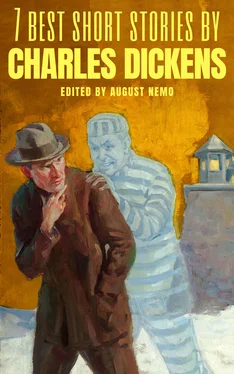
![Коллектив авторов - Best Short Stories [С англо-русским словарем]](/books/26635/kollektiv-avtorov-best-short-stories-s-anglo-thumb.webp)


